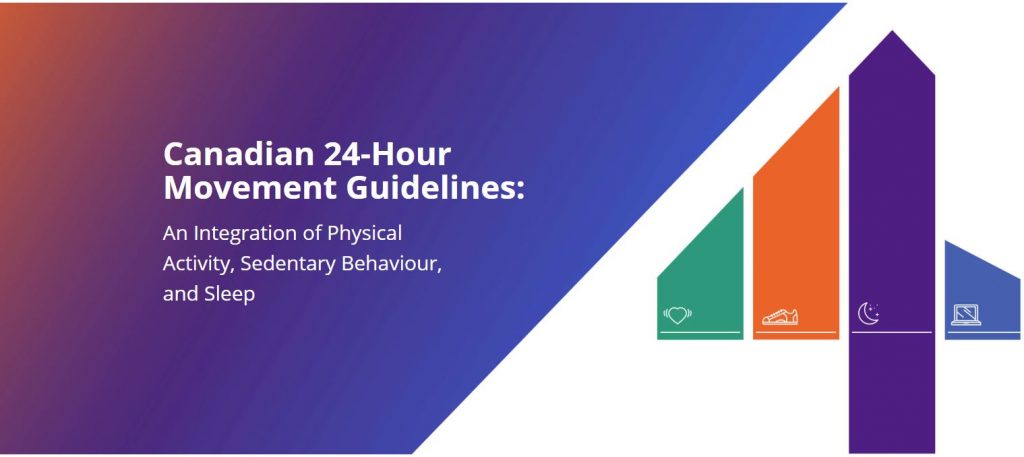Many children are not getting the right balance of moving, sitting, and sleeping, which can be harmful before age five, according to a new study using CHILD data.
Published in the Journal of Science and Medicine in Sport, the study examined associations between meeting the Canadian 24-Hour Movement Guidelines for the Early Years (ages 0-4) and behavioural and emotional problems in a large sample of three-year-old children.
Children who did not meet the guidelines were found to have more behavioural and emotional problems, including “externalizing” behavioural problems such as inattention and aggressiveness, and “internalizing” problems such as social withdrawal and depression.
For preschoolers (3–4 years), the guidelines recommend:
- no more than one hour of sedentary recreational screen time per day;
- at least three hours per day of total physical activity, with at least 60 minutes per day of moderate-to-vigorous physical activity;
- and 10–13 hours of sleep within a 24- hour period.
“Surprisingly, only 5% of three-year-old children in our study met all three recommendations,” says the study’s senior author Dr. Piush Mandhane, associate professor of pediatrics in the University of Alberta’s Faculty of Medicine & Dentistry.
“We know how important it is for young children to have the right balance of movement and sleep, so being aware of these guidelines can help parents give their preschoolers every chance to develop into healthy, active older kids.”
Dr. Mandhane says just 19.3% of three-year-old children met the physical activity recommendation, while 50.5% and 83.1% of children met the screen time and sleep recommendations, respectively.
Overall, the study found that meeting more recommendations within the 24-Hour Movement Guidelines was associated with fewer behavioural and emotional problems at three years of age.
The research used data from 539 Edmonton families involved in the CHILD Cohort Study. Dr. Mandhane leads the Study’s Edmonton site.
Dr. Valerie Carson, an associate professor in the University of Alberta’s Faculty of Kinesiology, Sport and Recreation, was the study’s lead author.
For the study, parents completed the Child Behavior Checklist (CBCL), a screening measure for a variety of problems such as anxiety and depression, emotional reactivity, inattention, aggressiveness, and sleep disturbances.
Parents also reported their child’s total screen time per day, including watching TV and DVD’s, and using computers, video consoles, smartphones and tablets.
To measure physical activity and sleep duration, children wore an Actigraph motion sensor on their wrist for 24 hours per day for a maximum of seven days.
“For specific combinations of physical activity and screen time, as well as screen time and sleep, we also found that meeting more recommendations was associated with fewer behavioural and emotional problems,” says Dr. Carson.
“Overall, this study suggests that an integrated and holistic approach for health promotion is needed in early childhood.”

